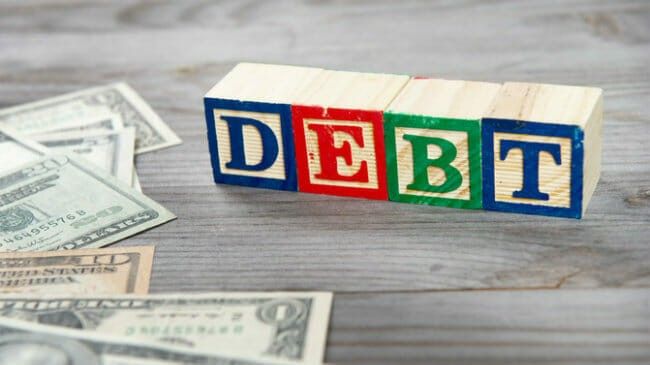If you recently received a promotion or cash gift, you might be wondering what to do about it. It may make sense to use it to pay off debt. However, depending on how much interest you pay, it may be a smarter financial move to invest money instead.
Before you make that decision, you need to crunch some numbers to figure out what your highest return on investment might look like. In this article, we’ll look at whether you should focus on investing or paying off debt, as well as specific factors you might want to consider before making a decision either way.
You should invest if:
Your portfolio ROI is high
If you’re hesitating whether or not you should invest your money, look at the potential return on investment of your portfolio. When your debt is cheaper than the average rate of return in the stock market, you may want to consider investing your money rather than aggressively repaying your debt.
Let’s say you recently took out a loan to buy a car with 4% per annum. Compare that to the average stock market return: The Vanguard S&P 500 ETF (VOO) tracks the S&P 500 and has delivered 10.92% returns to investors over the past five years. With low-interest debt, you can potentially earn more in the long run by investing in an ETF that tracks the growth of the entire stock market.
Read more: Best Vanguard Funds
You have a match with an employer
Many employers pay 401(k) contributions up to a certain percentage, usually 3% to 5%. Matching your employer isn’t just about free money you can invest; it is part of your overall compensation package. Not taking it is like returning part of your salary to the employer. You should prioritize getting the full amount over paying off the debt.
Investing in a 401(k) also provides tax benefits that you should also consider. Retirement accounts with tax benefits, such as your 401(k), use pre-tax dollars. Not only can you benefit from your employer, but contributing fully to your 401(k) can lower your taxable income in the short term.
Read more: How much should you contribute to your 401(k)?
Do you want to generate cash flow
Depending on your investment strategy, some investments can be a source of passive income. This could be income from property rentals or dividend payments on certain stocks in your portfolio.
Consider the financial benefits of generating cash flow when investing. If the income you receive is higher than the cost of financing your debt, it may make sense to keep investing. This makes your money work, creating more money for you in the short term. You can use passive income to pay off debt while continuing to expand your investment portfolio.
You should pay off your debt if:
Your debt has a high interest rate
Carrying around high-interest credit card debt will cost you more than the long-term benefits you could get from investing. According to LendingTree, the average credit card interest rate is 22.40%. Compound interest works both ways: it can help you accumulate wealth, but it can also get you further into debt.
If you find that you have consumer credit card debt, you should prioritize getting rid of it as soon as possible. To make repayment more manageable, you can restructure your debt by transferring the balance to a 0% APR credit card. Alternatively, you can choose a low interest rate debt consolidation loan. Once you have substantially reduced the interest rate on your debt and developed a debt repayment plan, you may consider investing.
Related: Best credit cards for balance transfers
Do you want to improve your credit score?
A low credit score can affect your ability to finance major purchases and pay off debt. About 30% of your credit score is determined by your credit usage. This tells creditors how much debt you have compared to the amount of credit you have access to. If you constantly use your credit card, it signals to lenders that you are a high-risk borrower and your credit score may suffer.
A bad credit history can make it difficult to get a loan with a low interest rate. If you’re looking to finance a major purchase, like buying a house, your credit score can add tens of thousands of dollars to your total loan cost. Paying off your debt now to lower your credit utilization rate can improve your score and save you money in the long run.
Also Read: How Your Credit Score Affects Mortgage Rates
You want to deal with the emotional burden of debt
It is important to consider the emotional toll that your debt takes on in your life. While you may feel some FOMO that you are not investing, the burden of debt can be much more detrimental to your overall psychological well-being. If your debt is what’s causing you to lose sleep, try to pay it off as quickly as possible.
Read more: Stress due to debt? 7 Anxiety Coping Strategies
PS Don’t forget to save some money too
Before you decide whether you should pay off your debt or invest, make sure you have an emergency fund. You’ll want to have easy access to cash in case you need to pay off unexpected expenses.
Start with a $1,000 fund for unplanned expenses like car repairs. From there, work on saving three to six months of your living expenses. This can help if you experience a sudden job loss or find yourself unable to work for a period of time.
Frequently asked Questions
Should I sell shares to pay off debt?
Selling shares to pay off debt may seem like a good and quick solution. But depending on the stock, the type of account you purchased it on, and how long you’ve held it, selling it might not be the best idea.
If you are investing in a company that performs well or pays high dividends, it makes sense to keep investing. This is especially true if the financial benefit of owning shares exceeds the value of your debt.
And you need to be extra careful if you’re considering selling shares from a tax-advantage account like your pension fund. There are early withdrawal penalties that can eat into your overall investment.
Consider also the tax implications of selling shares. If you held it for less than a year, you will have to pay short-term capital gains tax on it. This may cost you more than you could get from using the proceeds of the sale to pay off your debt.
Paying off your mortgage vs investing: which is more important?
If getting out of debt is important to you and your mortgage is the only thing standing in your way, there are some things to consider before you pay it off.
Interest is charged upfront on your mortgage, which means that most of your initial payments are applied to the interest, not the principal. You can pay off your mortgage faster if you prioritize additional payments at the beginning of the loan. This will reduce the amount of interest you pay in total.
Read more: Paying principal only versus principal and interest
Whether you want to use the equity in your home for renovations or use it as collateral to buy an investment property, it makes sense to pay off as much of your mortgage as possible. Using your home equity to add value to your home or build an investment portfolio can provide long-term financial returns.
However, there are some tax implications that you should consider before paying off your mortgage. Homeowners receive a mortgage interest deduction. Depending on your level of taxable income, losing this deduction could increase your tax bill or completely change your tax bracket.
Some lenders also charge early repayment penalties. Read the fine print of your mortgage to see if this applies to you. Paying off your mortgage may improve your financial well-being, but you may find that paying it off in full is not.
Summary: Paying off Debt vs. Investing
Before deciding whether you want to prioritize paying off debt or investing, you will need to calculate some numbers. Aggressively paying off low-interest debt or debt associated with a rising asset such as real estate may not be the best move for you financially. If the return is higher than the cost of financing your debt, it may be wise to invest at least some of your money while continuing to make minimum debt payments.
But you’ll want to prioritize paying off debt if you have high-interest credit card balances. Not only is this type of debt expensive to finance, but it can also negatively affect your ability to access less expensive lines of credit in the future. It can cost you more money in the long run and also worsen your quality of life in the short term.
Read more:


